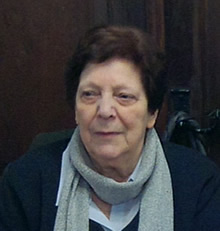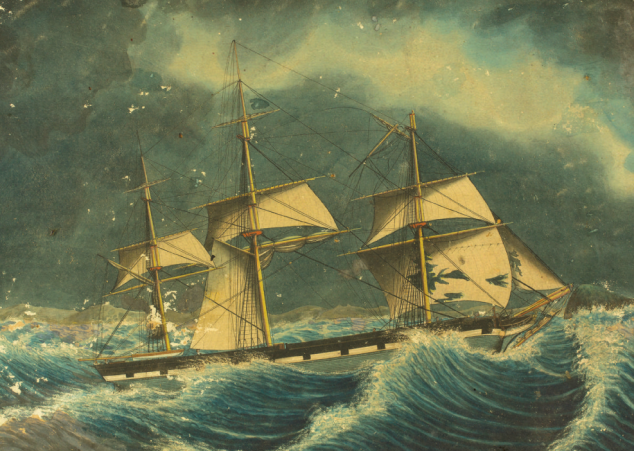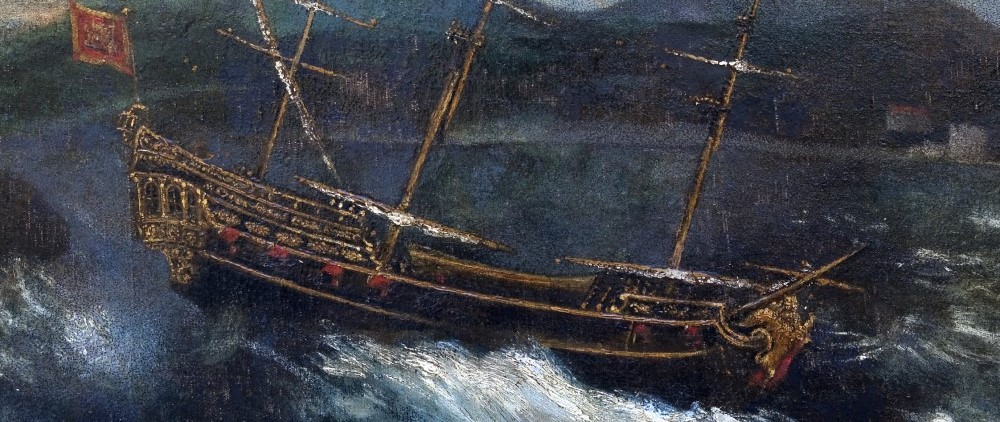The speech of Kotor has always been specific. It was created in accordance with social changes that resulted predominantly from the mixing of the Roman and Slavic linguistic strata.

The Roman and Slavic linguistic and cultural heritage of Kotor, pervaded with syncretism of the heritage of other peoples who lived in Boka, surrounded Gracijela from early days and intrigued her during her youth. She obtained her degrees in French language and literature and Italian language. Her first job was at the Gymnasium in Kotor, where she taught French, Italian and Latin. While working at the Gymnasium, Gracijela often wrote screenplays for school plays that were successfully performed. She also worked with children who showed talent for reciting, so she spent many hours teaching them proper diction.
She saw her social volunteer engagement as something she owed to her town. Gracijela continued her scientific research work at the Higher Maritime School in Kotor, when she was invited to teach Italian and French. At the Faculty of Maritime Studies in Kotor, in addition to her teaching engagement, she also worked as a proofreader of Zbornik, scientific and professional publication of this higher education institution. Gracijela was also the head of the Maritime Library. After the catastrophic earthquake, she participated in the renovation of the Central Commission building, intended for the future library. She is the author of numerous scientific papers and two scientific monographs. As someone who actively follows the cultural creativity of the town where she lives, she is often invited to open art events or present literary works to a wider audience.
( Adapted from Bio-bibliografija Gracije Čulić by Ruža Danilović )
The Romance language spoken by the common people relied on the standard Romance background. Today, it is called vulgar Latin – from vulgus meaning people – and in Kotor it originated from linguistic interferences with the Slavic stratum. The Slavs had been in Kotor for a long time, and in their language Latin sounded differently.

There were Slavs around the cities, and they were forbidden to enter the town. Romanian cattle breeders were also banned from entering. The town was exclusively inhabited by Romance people. When there were pillagings of town, the nobles would perish, and the peasants would enter through special passages. They would settle in the town and influence the emergence of a new idiom. Unlike Dubrovnik, Kotor was influenced by the Venetians.
Data on this exist in archives, mostly in epigraphs. There is a notable transition from vulgar Latin to a spoken Romance language. Here it was called the Dalmatian, after the Dalmatians, Illyrian tribe. In Istria, it was Vegliot language.
The power was modeled on romance towns, so Kotor was ruled by princes. Kotor went through several lootings, a total of 14, and therefore sought the protection of Venice, which officially entered Kotor in 1420. The Venetian dialect became the language of prestige. Nevertheless, Kotor-specific Romance idiom developed from mixing with Slavic languages, and was in active use until the 19th century. The Slavs gradually took the place of the rulers, and the Slavic stratum began to dominate. It was a symbiosis in the beginning, everyone understood everyone. There were also Albanians, Italians from Apulia. Church ties in particular were developed – the center of the diocese was in Bari. Even today there is the house of the Bishop of Kotor. Among the documents of the archives in Bari, there are records of Bjelopavlić’s immigration in that area. Gioia della Colle is a place where there are surnames of Montenegrin origin, but significantly adapted.

Trade, administrative, cultural ties – all documents were written in Italian. They were written by autochthonous Italians who came to Kotor on business. Also, on every ship there was a scribe. Although the captains were educated gents, they had scribes on ships who ran the so-called portolan (pl. portolani) – description of the area through which the ship passed. Portolani are valuable sources with rich descriptions of land-sea encounters. They described all details, every wind that blew, the shallows, the shelters, and were usually handwritten. By the handwriting style and wording could be seen if the scribe was educated. Interferences of Slavic and Italian are especially emphasized in portolani.
There is an interesting detail dating from the time of the French occupation (In the yearbook of the Maritime Museum – about Italian families in Kotor). During the French occupation that began in 1806, Paolucci, a diplomat, wrote that Kotor looked very bad at the time. The French had no regard for the local culture. They melted gold to make money. They were conquerors. The church dictated the modus vivendi. Abandoned children were left al solito posto della chiesa – at the altar of the church of St. Claire. If nobody noticed them, those children would die. Those who survived, would get names related to the seasons, or connected to some personal interests of priests: Napoleone, Cesare, Jupiter. Female children would usually be named after the flowers: Margherita, Gelsomina. Over time, the language developed and entered into the idiom. History flows in its own way. A lot of people moved away, returned to Italy. These were cycles of emigration and immigration. Today, it is no longer the once authentic idiom of soft accents. People kept the Italian words, but in a distorted way.
Here we bring a few historical words originating from Venetian. Some have remained until today, and will last as long as the terms they refer to exist. The others have disappeared, as have habits and customs.
Korijandoli – from coriandoli – coriander seed which in the past were used as confetti
Jarbol – alboro de le barche – mast
Bugance – buganze – inflammation which, due to cold in winter time, appears on the heels and fingers and toes
Fersa – red traces that appear on the skin after hitting
Lavandera – washerwoman
Papatač – pappataci – blood-sucking dipteran
Sjor – signore – gentleman
Ćao – schiao – ciao
Mufa – muffe – molds
Gobav – gobbo – hunchback
Takuin – taccuino – wallet
Marangun – carpenter



